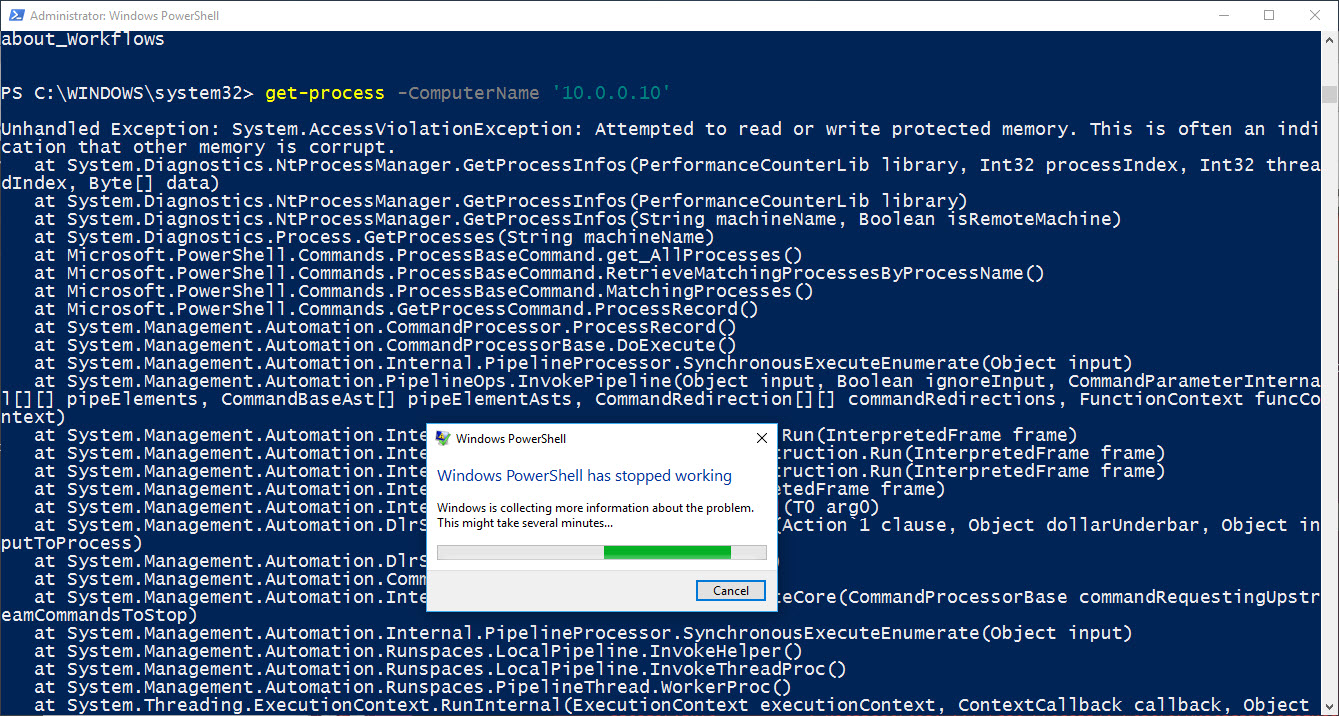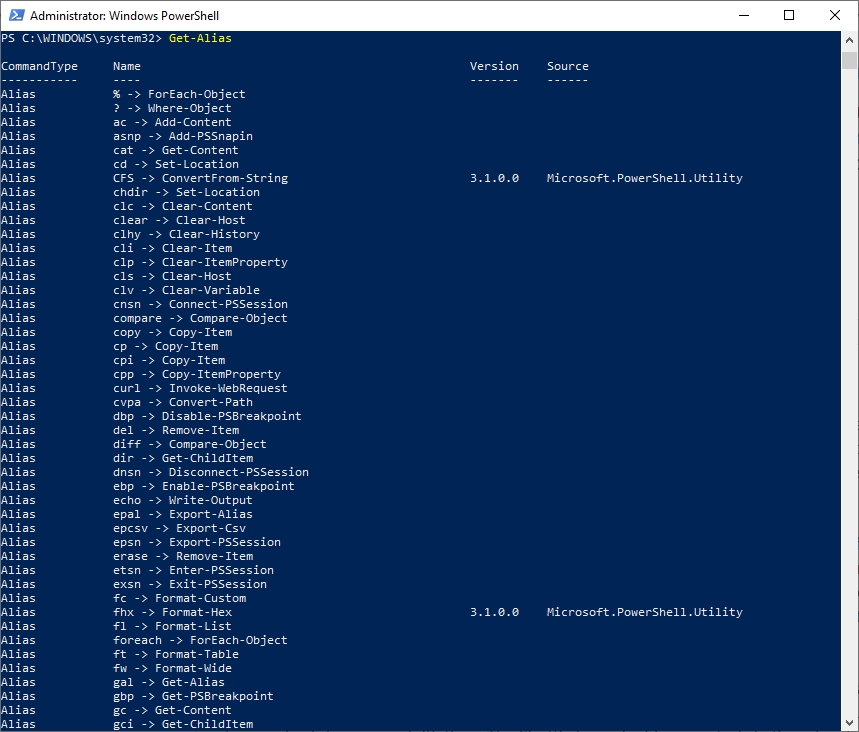

- WINDOWS ALIAS FOR SYSTEMNAME POWERSHELL FULL
- WINDOWS ALIAS FOR SYSTEMNAME POWERSHELL FREE
- WINDOWS ALIAS FOR SYSTEMNAME POWERSHELL WINDOWS
Get_VolumeLabel Method System.String get_VolumeLabel() Get_TotalSize Method System.Int64 get_TotalSize() Get_TotalFreeSpace Method System.Int64 get_TotalFreeSpace() Get_RootDirectory Method System.IO.DirectoryInfo get_RootDirectory() Get_IsReady Method System.Boolean get_IsReady() Get_DriveType Method System.IO.DriveType get_DriveType() Get_DriveFormat Method System.String get_DriveFormat() Get_AvailableFreeSpace Method System.Int64 get_AvailableFreeSpace() GetHashCode Method System.Int32 GetHashCode()
WINDOWS ALIAS FOR SYSTEMNAME POWERSHELL FULL
PS C:\Users\Administrator> $mydrive.TotalFreeSpaceĪ full listing of the properties and methods available for a DriveInfo object may be obtained using the Get-Member cmdlet: PS C:\Users\Administrator> new-object System.IO.DriveInfo("C") | get-memberĮquals Method System.Boolean Equals(Object obj) NET System.IO.DriveInfo or WMI Win32_LogicalDisk classes: PS C:\Users\Administrator> $mydrive = new-object System.IO.DriveInfo("C")
WINDOWS ALIAS FOR SYSTEMNAME POWERSHELL FREE
Individual attributes, such as the amount of free space on a drive, may be obtained through the. NET ::GetDrives() method: PS C:\Users\Administrator> ::GetDrives()įinally, the WMI Win32_LogicalDisk object may be accessed through the use of the get-wmiobject cmdlet: PS C:\Users\Administrator> get-wmiobject Win32_LogicalDisk To restrict the listing to physical drives containing file systems, the search needs to be restricted to file system providers: PS C:\Users\Administrator> Get-PSDrive -psprovider filesystemĪlternatively, the following example demonstrates the use of the.

WINDOWS ALIAS FOR SYSTEMNAME POWERSHELL WINDOWS
NET System.IO.DriveInfo class, or by accessing the Windows Management Instrumentation (WMI) Win32_LogicalDisk class: PS C:\Users\Administrator> get-psdriveĬlearly, the Get-PSDrive lists all drives in addition to the physical drives on the system (including the virtual drives such as those used to store Windows PowerShell variables and functions).

Report this ad Getting Disk Drive InformationĪ listing of drives may be obtained from within Windows PowerShell using either the Get-PSDrive cmdlet, the GetDrive() method of the. The following table lists the key file system related cmdlets together with the alias, cmd and UNIX shell alternatives:ĭescription Clear-Item cli N/A N/A Clears content of a file Copy-Item cpi copy cp Copies file or folder Get-Content gc type cat Gets the content of a file Get-Location gl cd pwd Gets the current directory Move-Item mi move mv Moves file or folder New-Item ni, md N/A N/A Creates file or folder Remove-Item ri del, rd rm, rmdir Deletes file or folder Rename-Item rni, rn ren mv Renames file or folder Set-Content sc N/A N/A Sets file content Set-Item si N/A N/A Sets file content Set-Location sl cd, chdir cd, chdir Sets current directory UNIX/Linux sh command The UNIX/Linux shell equivalent command to help user migrate skills to Windows PowerShell.cmd.exe command - The cmd.exe equivalent command to help users familiar with the Windows Command Prompt migrate to PowerShell.Alias - An preconfigured, abbreviated alias for the cmdlet name such as gl for Get-Location.Cmdlet name - The standard cmdlet name, such as Get-Location.Each command is accessible in a number of different ways: Windows PowerShell provides a collection of cmdlets specifically for the purposes of interacting with file systems.


 0 kommentar(er)
0 kommentar(er)
